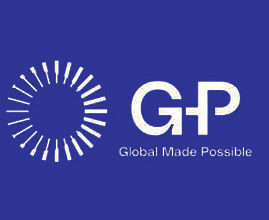
The field of talent acquisition is in a state of constant evolution, driven by technological advancements, shifting demographics, and the changing expectations of candidates. As organizations compete to attract and retain top talent, it’s essential to stay ahead of the curve by embracing the latest trends and adjusting recruitment strategies accordingly. In this article, we’ll delve into ten global talent acquisition trends for 2023 that are poised to reshape the recruitment landscape and help companies thrive in a competitive job market.
1. Embracing Artificial Intelligence (AI) in Recruitment
In 2023, we can expect Artificial Intelligence (AI) to play an even more significant role in talent acquisition. AI-driven solutions will streamline and enhance various aspects of recruitment, including resume screening, candidate matching, chatbots, and virtual interviews. By automating repetitive tasks and providing data-driven insights, AI allows recruiters to focus on building meaningful relationships with candidates and making better hiring decisions.
How AI Enhances Recruitment
- Automated Resume Screening: AI algorithms can quickly sift through thousands of resumes, identifying the most qualified candidates.
- Personalized Candidate Matching: AI can match candidates with job openings based on their skills and experience.
- Efficient Chatbots: Chatbots powered by AI can engage with candidates, answer questions, and schedule interviews.
- Virtual Interviews: AI can conduct initial candidate interviews, saving time and resources.
2. Prioritizing Candidate Experience
In today’s digital age, candidates have more information and options at their fingertips than ever before. To stand out, organizations must prioritize creating exceptional candidate experiences. This involves personalized communication, transparent recruitment processes, and timely feedback. Companies that invest in candidate experience gain a competitive edge by establishing strong employer brands and enhancing their reputation among job seekers.

- Elements of an Exceptional Candidate Experience
- Personalized Communication: Tailoring communication to candidates’ preferences and needs.
- Transparent Processes: Keeping candidates informed about the recruitment process.
- Timely Feedback: Providing constructive feedback and updates throughout the hiring journey.
3. Adapting to the Remote and Hybrid Workforce
The COVID-19 pandemic accelerated the adoption of remote and hybrid work models. In 2023, organizations will continue to embrace flexible work arrangements to meet employee expectations. This trend requires a shift in talent acquisition strategies to attract and retain remote talent effectively. Optimizing virtual onboarding processes, leveraging collaboration tools, and redefining job requirements and performance metrics will be essential.
Navigating the Remote Work Landscape
- Virtual Onboarding: Creating seamless onboarding experiences for remote hires.
- Collaboration Tools: Utilizing technology to facilitate remote teamwork.
- Flexible Job Requirements: Adapting job roles to accommodate remote work.
4. Strengthening Employer Branding and Employee Value Proposition (EVP)
Employer branding remains a critical factor in talent acquisition for 2023. Companies that invest in developing and promoting their employer brand will attract high-quality candidates who resonate with their values and culture. Building a robust Employee Value Proposition (EVP) is vital, highlighting unique benefits and growth opportunities. Effective communication of EVP differentiates organizations from competitors and appeals to top talent.
Building a Compelling Employer Brand
- Showcasing Company Culture: Highlighting the workplace culture and values.
- Emphasizing Growth Opportunities: Communicating opportunities for career development.
- Employee Testimonials: Sharing authentic stories from current employees.
5. Focusing on Diversity, Equity, and Inclusion (DEI)
Diversity, Equity, and Inclusion continue to be top priorities for organizations in 2023. Candidates seek inclusive workplaces that value diversity. Talent acquisition teams will concentrate on sourcing diverse candidates, eliminating bias from hiring processes, and implementing inclusive policies. Prioritizing DEI efforts not only fosters a more equitable workplace but also attracts diverse talent, fostering innovation and driving business success.
Promoting DEI in Recruitment
- Diverse Sourcing: Actively seeking candidates from underrepresented backgrounds.
- Inclusive Hiring Processes: Ensuring that interviews and evaluations are free from bias.
- Training and Awareness: Educating hiring teams about the importance of diversity and inclusion.
6. Shifting Towards Skills-based Hiring
In 2023, organizations will move away from traditional qualifications and degrees and focus more on skills-based hiring. This approach emphasizes candidates’ abilities, experience, and potential over specific educational backgrounds. Skill assessments, online portfolios, and practical tests will play a pivotal role in evaluating candidates accurately. This trend promotes inclusivity and opens up opportunities for candidates from non-traditional backgrounds.

The Benefits of Skills-based Hiring
- Inclusivity: Welcoming candidates with diverse educational backgrounds.
- Accurate Assessment: Evaluating candidates based on their real-world skills.
- Future-proofing: Preparing the workforce for rapidly evolving industries.
7. Leveraging Data-driven Recruitment
Data analytics will be at the heart of talent acquisition strategies in 2023. Organizations will use data to gain insights into recruitment processes, identify bottlenecks, and make informed decisions. Recruitment analytics platforms will help measure the effectiveness of sourcing channels, evaluate the success of recruitment campaigns, and predict future hiring needs. Data-driven recruitment enables organizations to optimize processes, reduce time-to-hire, and improve overall outcomes.
Harnessing the Power of Data
- Recruitment Metrics: Tracking key performance indicators (KPIs) to measure success.
- Predictive Analytics: Anticipating future hiring needs based on historical data.
- Process Optimization: Identifying areas for improvement in the recruitment process.
8. Investing in Continuous Learning and Development
In a rapidly evolving job market, continuous learning and development are crucial for both employees and employers. In 2023, organizations will invest in upskilling and reskilling programs to enhance employee capabilities and promote career growth. Talent acquisition teams will prioritize candidates with a growth mindset and a willingness to learn. Offering learning opportunities not only attracts top talent but also contributes to employee engagement and retention.
The Role of Learning and Development
- Upskilling Programs: Providing employees with opportunities to acquire new skills.
- Reskilling Initiatives: Helping employees transition to new roles or industries.
- Career Development Pathways: Outlining opportunities for growth within the organization.
9. Embracing the Gig Economy and Freelancing
The gig economy and freelancing have gained significant momentum in recent years. In 2023, organizations will increasingly tap into this talent pool to access specialized skills, fill temporary gaps, or complete specific projects. Talent acquisition strategies will need to adapt to attract and engage gig workers. This may involve developing flexible compensation models and creating virtual communities to foster collaboration and networking.
Harnessing the Gig Economy
- Flexible Contracts: Offering short-term and project-based work arrangements.
- Virtual Communities: Building online platforms for freelancers to connect and collaborate.
- Skill-specific Hiring: Targeting gig workers with specialized skills for specific projects.
10. Perfecting Remote Hiring and Onboarding
As remote work becomes the norm, organizations will continue to refine their remote hiring and onboarding processes in 2023. Virtual interviews, online assessments, and remote skill evaluations will become standard practices. To ensure a smooth transition for new hires, organizations will enhance their virtual onboarding experiences. This includes providing comprehensive resources, remote training, and mentorship opportunities. Embracing remote hiring and onboarding practices will enable organizations to access talent worldwide and build high-performing virtual teams.
Navigating Remote Hiring and Onboarding
- Virtual Interviews: Conducting interviews via video conferencing tools.
- Online Assessments: Evaluating candidates’ skills and competencies remotely.
- Comprehensive Resources: Providing new hires with everything they need for success.
Conclusion
In 2023, talent acquisition will be shaped by technological advancements, changing work dynamics, and evolving candidate expectations. Embracing AI, prioritizing candidate experience, and adapting to remote work models will be crucial for organizations to attract and retain top talent. Furthermore, investing in employer branding, promoting diversity and inclusion, and embracing skills-based hiring will enhance recruitment outcomes. Leveraging data analytics, fostering continuous learning, tapping into the gig economy, and refining remote hiring and onboarding processes will also be key trends to watch. By staying informed and agile, organizations can navigate the evolving talent acquisition landscape successfully and build strong, diverse, and high-performing teams.

FAQs
1. How can AI improve the recruitment process?
AI can enhance recruitment by automating tasks like resume screening, matching candidates to job openings, and conducting initial interviews, freeing up recruiters to focus on building relationships with candidates and making better hiring decisions.
2. What is the significance of candidate experience in recruitment?
Candidate experience is vital as it influences a company’s reputation and its ability to attract top talent. Personalized communication, transparent processes, and timely feedback can create a positive candidate experience.
3. How can organizations promote diversity and inclusion in recruitment?
Organizations can promote diversity and inclusion by actively sourcing candidates from underrepresented backgrounds, implementing bias-free hiring processes, and providing training and awareness programs.
4. Why is skills-based hiring gaining popularity?
Skills-based hiring focuses on candidates’ abilities, experience, and potential rather than specific degrees. This trend promotes inclusivity and ensures that candidates are evaluated based on their real-world skills.
5. What are the benefits of data-driven recruitment?
Data-driven recruitment enables organizations to gain insights, optimize processes, reduce time-to-hire, and make informed decisions. It helps measure the effectiveness of sourcing channels and predict future hiring needs.





